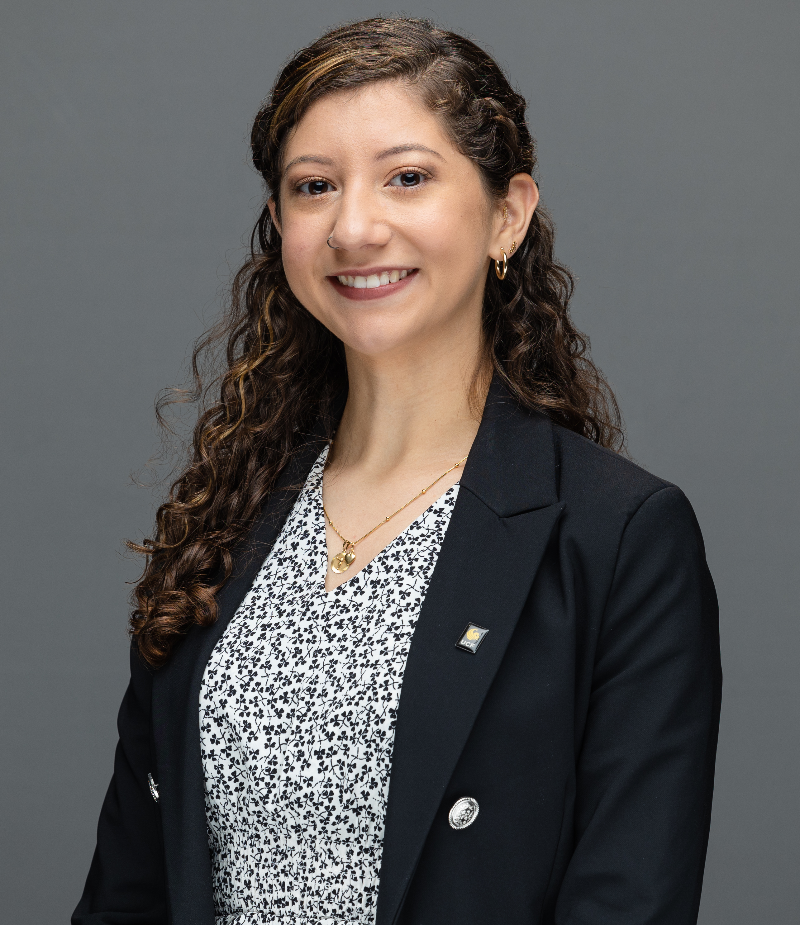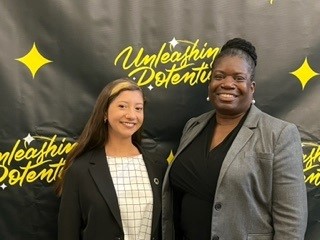
When it comes to sustainability, Nicole Boisson is all about encouraging growth and nourishment, whether by cultivating crops on an organic farm, feeding fellow students a steady diet of useful information, or sowing the seeds of awareness among faculty and staff.
As the Sustainability & Innovation Coordinator for Student Government (SG), Boisson’s primary role is to educate students about what sustainability means at UCF. But she’s also a conduit for dialogue between students and administrators on environmental topics, as well as a force for change on campus.
“I facilitate biweekly meetings to gather student opinions on these issues,” she says. “Then I meet with higher administrators and pass initiatives that students want to see.”
Through her position, Boisson controls a modest budget that she uses to fund those initiatives and organize events. Last semester, she staged a sustainability fair on Memory Mall to showcase ways students can integrate sustainability into their own lives.
“So many groups participated,” says Boisson. “Wellness & Health Promotion Services did a cooking demo, the Entomological Society talked about the role of bugs in sustainability, and representatives from the UCF Arboretum gave out information on land management. It was great.”
Currently, Boisson is working with administrators to promote and strengthen UCF’s fair-trade resolution. Under that resolution, campus stores and restaurants must offer items that are ethically sourced and produced, using sustainable practices, by workers who are paid fair wages.
“A fair-trade resolution is a commitment to pay attention to where items and resources are coming from,” says Boisson. “UCF already has one, but we just want to do more to promote it and reinforce the university’s commitment to it.”
The potential to have this kind of impact is what drew Boisson to UCF from her hometown of Land o’ Lakes, near Tampa, Florida.
“I knew about the UCF Arboretum and the environmental science program, and I wanted to help build that and be part of that community,” she says.
Boisson, who is pursuing degrees in both environmental studies and political science, also was drawn to UCF because of its political connections.
“So many Orlando representatives have ties to UCF,” says Boisson, adding that she was able to take advantage of those ties last summer as an intern for Florida House Rep. Anna Eskamani.

In addition to her role in SG, Boisson also is the community farm and garden co-coordinator for the UCF Arboretum. In that position, she manages an organic urban farmland on UCF’s campus. With the help of interns and volunteers, Boisson uses the arboretum to address food security and sustainability issues and teach others how to propagate, transplant and harvest produce. She also leads volunteers in community engagement initiatives.
“Sustainability is a new concept to most people,” says Boisson. “So I like to meet people where they are and educate them as much as I can from what I’ve learned both in class and in real life.”
That outreach is especially important, she says, when you’re dealing with students.
“They have so much on their mind, and some students can’t afford to purchase things that are organic or eco-friendly because those items tend to be more expensive,” says Boisson. “I try to show them easy, alternative and inexpensive ways that they can live more sustainably.”
At the Arboretum, she gets to work alongside Jennifer Elliott, UCF’s director of Arboretum and Sustainability Initiatives. Boisson cites Elliott and environmental studies lecturer Richard Plate as big influences in both her personal and academic life.
“They are the best mentors I’ve ever had,” says Boisson.
In large part due to the support and encouragement Boisson receives from Elliott, Plate and others, she’s excited to hit the ground running once she graduates from UCF.
“I want to go straight into the workforce to study our conservation lands,” she says.
One type of conservation land that interests Boisson is wetlands. She particularly wants to be involved in the “no net loss” rule that governs the development of wetlands across the U.S. This rule requires a developer to create an acre of new, manmade wetland for every acre of natural wetland it destroys. This practice of “mitigation banking” is common in Central Florida, with Walt Disney World, Kennedy Space Center and others setting land aside for “wetland restoration.”
“The zero-net loss rule is a good policy, but it needs stronger oversight and enforcement,” says Boisson. “A developer can destroy a beautiful, pristine ecosystem and then make something low quality somewhere else. The policy needs to be amended to say that the replacement wetland must be of the same quality as the one that’s been destroyed.
“That is something I would like to see in the future, especially here in Florida, because we have so many beautiful wetlands and so much amazing wildlife depends on these ecosystems, especially here in Orlando.”
One reason Boisson is so passionate about wetlands and wetland remediation is that she has seen first-hand how vital they are. In her free time, she enjoys hiking in Orlando Wetlands Park, Wekiva Springs and Ocala National Forest. She’s also an avid traveler and hopes to one day develop and promote sustainability initiatives that incorporate best practices from other parts of the world.
“My dream is to visit Norway, Sweden and Finland because they have such amazing sustainability policies,” says Boisson. “I would definitely love to learn from them.”
Wherever she goes, it’s a safe bet that Boisson will continue to grow and nourish the sustainability and conservation movement, just as she’s done at UCF.
“Ultimately I want to take all of my knowledge, all the science I’ve gathered and put that into policy so we can really see a bigger real-world change.”
In recognition of her leadership and academic excellence, Boisson was inducted into UCF’s Order of Pegasus and received the College of Undergraduate Studies Founders’ Day Award on April 5 at the Founders’ Day Student Honors Celebration.